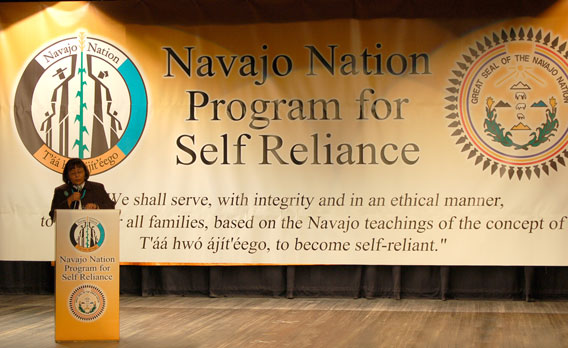 The Personal Responsibility and Work Opportunity Reconciliation Act (PRWORA) of 1996, was signed on August 22, 1996, by President Bill Clinton.
The Personal Responsibility and Work Opportunity Reconciliation Act (PRWORA) of 1996, was signed on August 22, 1996, by President Bill Clinton.
The PRWORA Act replaced Aid to Families with Dependent Children (AFDC), an entitlement program. The focus of welfare reform was to encourage employment and impose time-limited assistance. In addition, PRWORA allowed tribes for the first time, to administer their own TANF programs.
December 1996, the Navajo Nation embarked on the development and implementation of its own TANF program. The diversity of the population and geographical distances of the Navajo Nation proved challenging in developing the TANF program.
July 1999, the Navajo Nation submitted its first Tribal Family Assistance Plan (TFAP). The TFAP outlined a three (3) year plan and is a measure of accountability for the Navajo Nation TANF program. The TFAP is updated every three years.
The TFAP emphasizes and promotes the Navajo traditional teaching of prosperity, particularly the concept of T’áá hwó ájít’ éego – to be responsible for your own self.
March 2002, the Navajo Nation TANF program officially opened its doors and began offering services independent from the states of Arizona, New Mexico and Utah.
January 2007, the Navajo Nation TANF Program changed its name to the Navajo Nation Program for Self Reliance to advance the values of the program. January 2014, the program established itself as a department and was renamed, the Department for Self Reliance.